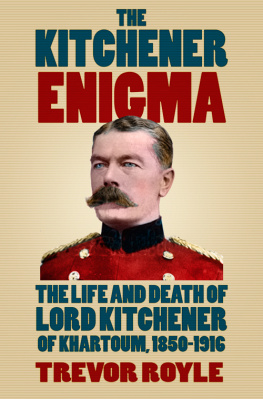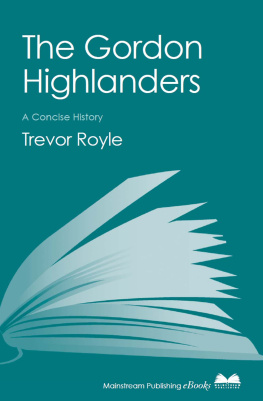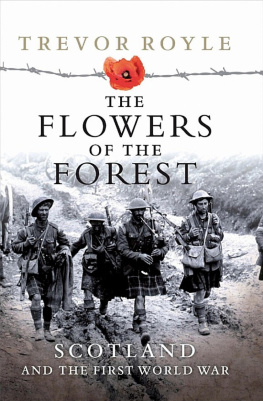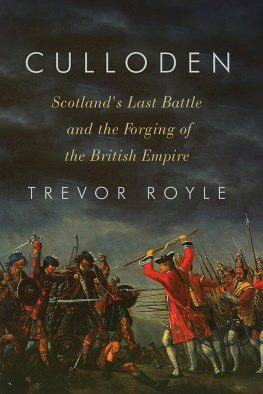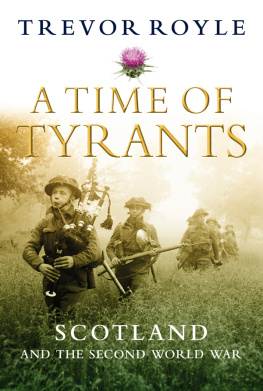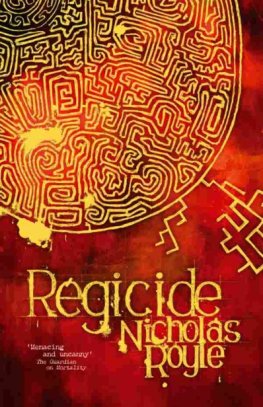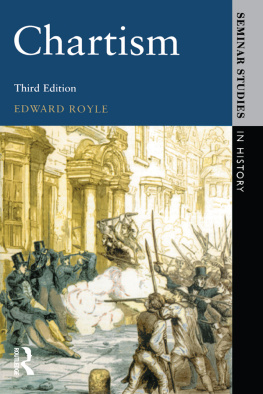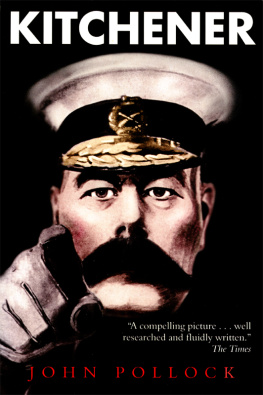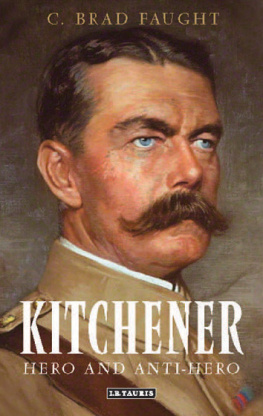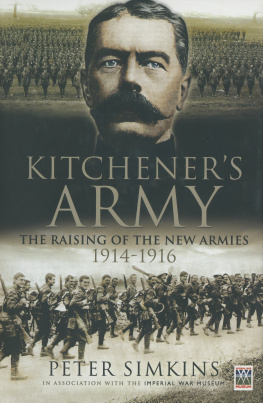

CONTENTS
T his book is being republished in 2016 to commemorate the centenary of the death of Field Marshal Earl Kitchener of Khartoum. It was first published in 1985 under the title The Kitchener Enigma and I have used the opportunity to make corrections, where necessary, to the original text. I have also reduced the length of the book and, more importantly, have recast the chapters dealing with Kitcheners role in the First World War to take advantage of the advances in scholarship that have taken place over the last thirty years. In this respect I am particularly grateful to have had sight of recent work undertaken by George H. Cassar, David French, Keith Neilson and Peter Simkins, whose Kitcheners Army: The Raising of the New Armies 19141916 must be the definitive account of the formation of the largest British Army in history.
The suggestion to republish my book came from Michael Leventhal and I am grateful to him and the staff at The History Press for all their help and encouragement during the editing and recasting process.
Debts remain from the first edition and my first is to the members of the Kitchener family who provided me with access to previously unpublished letters and papers relating to Kitcheners private life. Mrs Anne Edgerly, Kitcheners great-niece, allowed me to borrow her collection of private letters written by Kitchener to his sister Millie between 1870 and 1899. The late Earl Kitchener lent me Sir George Arthurs notebooks and a selection of miscellaneous papers relating to his great-uncle. My thanks to him and to his sister, Lady Kenya Tatton-Brown, for their support and generous hospitality.
For help in researching Kitcheners childhood in Ireland, I must thank, first and foremost, my good friend the late Colonel Eoghan O Neill, to whom the original biography was dedicated. Through him I was introduced to three historians who gave freely of their time and experience to help me uncover some of the facts about the Kitchener familys residence in Ireland. They all have my thanks: Dithi hgin, University College Dublin; Donall Launaigh, National Library of Ireland; and Padraig Snodaigh, National Museum of Ireland. Father J. Anthony Gaughan allowed me to use material from his extensive research into the local histories of Limerick and Kerry; Bryan MacMahon of Listowel and John Savage of Tralee helped in similar fashion, as did Seamus McConville, editor of The Kerryman . Dr K.P. Ferguson of the Military History Society of Ireland, and Irish labour historian Sean Hutton provided me with many useful leads in understanding Kitcheners attitudes to recruiting in Ireland during the First World War, and at a crucial stage in my examination of the Redmond Papers I was helped greatly by the insights provided by my good friend Owen Dudley Edwards, erstwhile Reader in Commonwealth and American History at the University of Edinburgh.
The late Sir Philip Magnus-Allcroft, a distinguished earlier biographer of Kitchener, commented on some of my findings and offered kindly encouragement, for which I am most grateful.
For their insights into the sinking of HMS Hampshire I owe thanks to John R. Breckenridge, who organised the underwater surveys of the wreck in 1977 and 1983, and to his associate Dr Larry McElroy, who gave me sight of his written research findings. Ex-Stoker F.L. Sims, the last living survivor of the Hampshire s crew, allowed me to interview him: many of his comments on the disaster are contained in Chapter 14. He has my thanks.
Others who discussed with me aspects of Kitcheners life or who helped in other ways and to whom I owe thanks are: Derek Bowman, Dr Paul Dukes, Chris Graham, Callum Macdonald, Neil Mackay, Sorley MacLean, John Montgomery, Hayden Murphy, Walter Perrie, Lindsay Phillips, Dr Jill Stevenson and Francis Stuart. With the passing of the years some are no longer with us but their help and encouragement remain strong in the memory.
Libraries and their staffs must come high in the regard of any self-respecting author, and here I was not lacking support and helpful suggestions. Alan Taylor, formerly of the City of Edinburghs library service and now a distinguished author, was always sympathetic and painstaking with my many requests for books and papers, and as ever the staff of the National Library of Scotland provided me with books and manuscripts in their customary professional way. I was equally well provided for at the Public Record Office, Kew (now the National Archives), which holds the principal Kitchener manuscript collection, as well as the Admiralty and War Office papers and other private collections quoted in the text. I should also like to thank the staffs of the libraries at the Imperial War Museum, the National Army Museum, the National Maritime Museum and Kirkwall Public Library, whose librarian, the late John L. Broom, provided me with useful newspaper cuttings relating to the loss of HMS Hampshire .
The author and publisher would like to thank the following for permission to reproduce their photographs in this volume: National Army Museum (pictures 1, 12, 13, 20, 23, 26 and 28), Illustrated London News Picture Library (2, 3, 5, 6, 8, 14, 15, 16, 21, 25, 30, 32, 33, 34, 36, 45, 46, 47 and 48), Mansell Collection (4, 7, 9, 22, 24, 29, 35 and 44), Imperial War Museum (10, 37, 38, 39, 40 and 41), BBC Hulton Picture Library (11, 19, 31, 42 and 43), Punch (17, 18, 27 and 49).
T o most people, those who knew him by virtue of their service with him, or those who recognised him only by his beckoning finger and imperious wartime command to serve their country, Field Marshal Horatio Herbert Kitchener, 1st Earl of Khartoum and of Broome, was an enigma.
Given to being both anti-social and a stern taskmaster, he found it difficult to express his innermost feelings and frequently retreated behind a public persona consisting of cold unblinking eyes, a luxuriant moustache and a taciturnity that defied encroachment. Yet Brigadier-General Frank Maxwell, VC, whom Kitchener called The Brat and who was his ADC and confidant from 1900 to 1906, was moved to write to his father that He [Kitchener] really feels nice things, but to put tongue to them, except in very intimate society, he would rather die.
Kitchener discouraged close acquaintance, even with those who served on his staff, yet he was given to sentimental gestures to those whom he admired or to those who had given him their loyalty. In August 1915, at a time when the nation was beginning to accustom itself to the big losses of the First World War following the Battles of Neuve Chapelle and Festubert, Kitchener lapsed into tearful silence on hearing the news of the death of Julian Grenfell, the much admired poet son of his friend Lord Desborough.
Kitchener was also a man who believed that he was defrauding the Almighty if he were not doing his full duty, but that belief in hard work also carried with it the fear of failure. I wish you could tell me more what Im doing wrong, he asked Lord Derby, his Director-General of Recruiting in 1915. I feel there is something more I ought to do for the country. I am doing all that I can and yet I feel that I am still leaving much undone.
His ambition, which his detractors thought undisguised and vainglorious, took him to become Sirdar, or Commander-in-Chief, of the Egyptian Army; Governor-General of the Sudan; Commander of the British forces during the Boer War; Commander-in-Chief of the army in India; and British Agent and virtual ruler of Egypt. In turn he became one of the best-known symbols of Empire yet, when he was invited in August 1914, it took all the persuasion of his Prime Minister to make him Secretary of State for War.
Next page
